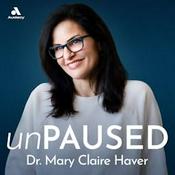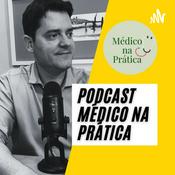Meet the Authors: A Neuropsychology Podcast
Society for Clinical Neuropsychology (SCN)

Último episódio
15 episódios
Domain-Specific Changes in Everyday Cognition: Associations with Diagnosis Change and Gray Matter Volume Change
20/1/2026 | 28minIn this episode of Meet the Authors, Dr. Scott Sperling is joined by first author Dr. Brandon Gavett to discuss his paper, Domain-Specific Changes in Everyday Cognition: Associations with Diagnosis Change and Gray Matter Volume Change. Drawing on longitudinal data from 891 older adults, the study examines how cognitive abilities change over time and how these changes relate to diagnostic transitions and brain atrophy. Findings highlight the sensitivity of the Everyday Cognition (ECog) scale to clinical disease severity and underlying gray matter atrophy when used longitudinally.Inhibitory Control Underpins the Relationship Between Cognitive and Psychological Inflexibility After a Moderate to Severe Traumatic Brain Injury
03/11/2025 | 21minIn this episode, Dr. Scott Sperling discusses the article Inhibitory Control Underpins the Relationship Between Cognitive and Psychological Inflexibility After a Moderate to Severe Traumatic Brain Injury with authors Drs. Diane Whiting and Josh Faulkner. This study examined how deficits in cognitive flexibility relate to psychological inflexibility and distress among individuals with a traumatic brain injury (N = 66). Results showed that poorer performance on the Stroop color-word task, a measure of inhibitory control, was significantly associated with greater psychological inflexibility and distress. Overall, findings support the idea that cognitive flexibility—particularly inhibitory control—is a key component of psychological inflexibility.- In this episode, Dr. Scott Sperling discusses the article Joint Effects of Human Immunodeficiency Virus (HIV) and Cannabis on Neurocognition with first author Ashley Adams, MS and senior author Dr. Raul Gonzalez. This study explored the effects of cannabis use and HIV on neurocognition in a demographically diverse sample (N = 269). Results showed that participants who endorsed cannabis use (CB+) and had an HIV diagnosis (HIV+) were more likely to be labeled with a memory impairment compared to controls (CB-/HIV-). Addiitionally, the CB+/HIV- was twice as likely to be labeled with an executive functioning impairment compared to controls. Overall, results suggest that cannabis use confers risk for neurocognitive decline in HIV; however, risk must be weighted against potential effect on symptoms.
The Association of Multilingualism with Diverse Language Families and Cognition Among Adults with and without Education in India
25/3/2025 | 20minIn this episode, Dr. Scott Sperling and student leader, Grace Goodwin, discuss the article The Association of Multilingualism with Diverse Language Families and Cognition Among Adults with and without Education in India with the senior author, Dr. Miguel Arce Rentería. This study leveraged the rich linguistic diversity across all socioeconomic gradients in India to understand how multilinguilism impacts cognition later in life in individuals with and without formal education. Participants were from The Longitudinal Aging Study in India-Diagnostic Assessment of Dementia which included 4,088 individuals, 54% of whom did not have formal education. Analyses employed education-stratified regression models. Results showed that for individuals with formal education, multilingualism was associated with better cognitive functioning. For individuals without formal education, results differed based on the similarity of languages known by the individual such that those who knew multiple languages that were more similar linguistically (over those who knew multiple dissimilar languages) had better executive functioning than monolinguals. This study adds to our understanding related to the impact of multilingualism (including language similarity) and education on cognition in an aging population.- In this episode, Dr. Scott Sperling and Dr. Elaine Schultz discuss the article p-Tau/Aβ42 ratio associates with cognitive decline in Alzheimer's disease, mild cognitive impairment, and cognitively unimpaired older adults with two the paper's authors, Dr. Ruchika Prakash and Michael McKenna. The goal of the study was to examine whether a CSF-based p-Tau/Aβ42 ratio predicted aspects of cognition (global cognitive functioning, episodic memory, and executive functioning) over a 2-year period (data collected at baseline, 6 months, 12 months, and 24 months). This study utilized data from 1,215 older adults through the Alzheimer's Disease Neuroimaging Initiative including those who were cognitive unimpaired, those with mild cognitive impairment, and those with Alzheimer's Disease. Results showed that the p-Tau/Aβ42 ratio predicted global cognitive decline and episodic memory decline in mild cognitive impairment and Alzheimer's disease and was able to predict decline in executive functioning across all group. This study highlights the potential impact of Alzheimer's-related pathology in the broader aging population on cognitive abilities, with particular impact on executive functioning.
Mais podcasts de Saúde e fitness
Podcasts em tendência em Saúde e fitness
Sobre Meet the Authors: A Neuropsychology Podcast
We are pleased to introduce the Meet the Authors podcast series, brought to you by a collaboration of the Society for Clinical Neuropsychology (SCN) and the journal Neuropsychology. In this podcast series, a SCN student leader, with support from
members of the SCN Scientific Advisory Committee and podcast host Dr. Scott Sperling, will discuss a recently published study with the authors who undertook the research. This podcast aims to provide a behind the scenes look into the development, implementation, analysis, and future implications of cutting-edge neuropsychology research.
Site de podcastOuça Meet the Authors: A Neuropsychology Podcast, Huberman Lab e muitos outros podcasts de todo o mundo com o aplicativo o radio.net

Obtenha o aplicativo gratuito radio.net
- Guardar rádios e podcasts favoritos
- Transmissão via Wi-Fi ou Bluetooth
- Carplay & Android Audo compatìvel
- E ainda mais funções
Obtenha o aplicativo gratuito radio.net
- Guardar rádios e podcasts favoritos
- Transmissão via Wi-Fi ou Bluetooth
- Carplay & Android Audo compatìvel
- E ainda mais funções


Meet the Authors: A Neuropsychology Podcast
Leia o código,
baixe o aplicativo,
ouça.
baixe o aplicativo,
ouça.





































